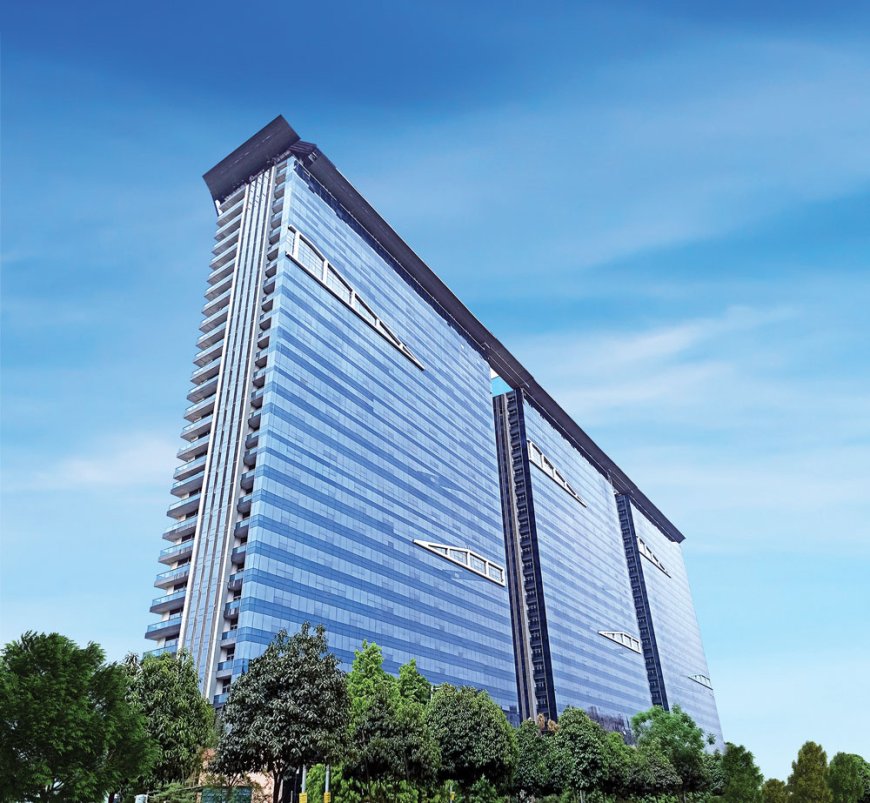Delays in land acquisition and regulatory approvals remain one of the biggest hurdles.
The North India real estate market is undergoing a significant transformation, led by a surge in demand for luxury housing, especially in Delhi-NCR. In 2024, premium and luxury homes—those priced above Rs 1 crore—accounted for over 50% of residential sales, reflecting a growing appetite for high-end living spaces.

What are the major market trends in the north India real estate market?
The North India real estate market is undergoing a significant transformation, led by a surge in demand for luxury housing, especially in Delhi-NCR. In 2024, premium and luxury homes—those priced above Rs 1 crore—accounted for over 50% of residential sales, reflecting a growing appetite for high-end living spaces. On the commercial side, regions like Noida, Yamuna expressway and Gurugram are seeing strong growth, driven by corporate expansion and the increasing presence of global businesses. Large-scale developments in these hubs are helping meet the rising demand for premium office and retail spaces. There's also a clear trend toward integrated townships that blend residential, commercial, and recreational spaces, offering convenience and a more complete urban lifestyle. Sustainability continues to be a major priority, with both developers and buyers showing strong interest in green buildings and energy-efficient designs. These market movements are further supported by infrastructure improvements and government reforms, which are collectively boosting transparency, confidence, and long-term investment potential in the region.
How is the demand trend in residential and commercial segments?
The demand across residential and commercial real estate segments in North India is witnessing strong and sustained growth, albeit with different dynamics. In the residential sector, there has been a sharp rise in demand for premium and luxury homes, particularly in the Rs 3-5 crore and Rs 5 crore-plus categories, which saw annual growth rates of 170% and 116% respectively in early 2024. Delhi-NCR alone accounted for around 45% of luxury home sales during this period, indicating a clear shift in buyer preference towards spacious, high-end living spaces. On the commercial front, the market has been equally buoyant. Gross leasing activity touched 18.38 million sq. ft. in Q2 2024—a 21.3% increase from the previous quarter—with Delhi-NCR contributing nearly 27% of this volume. Demand is being fuelled by sectors such as BFSI, co-working, and manufacturing, as both global and domestic firms seek modern, flexible office infrastructure. Together, these trends underscore North India’s growing stature as a robust and diversified real estate hub.
What are the factors that propels the growth of real estate market in the region?
The growth of the real estate market in North India is being propelled by a combination of infrastructure upgrades, policy support, and evolving consumer preferences. Improved connectivity through new expressways, metro expansions, and projects like the upcoming Noida International Airport have opened up new investment corridors, especially in and around Delhi-NCR. Reforms like RERA and GST have added transparency and efficiency, encouraging greater participation from both end-users and institutional investors. At the same time, rising urbanization and increasing disposable incomes have led to higher demand for quality housing and lifestyle-driven developments. The region is also benefiting from the expansion of IT, manufacturing, and service sectors, which has increased the need for commercial office space and retail hubs. On top of that, post-pandemic lifestyle shifts have made spacious, well-amenitized, and eco-friendly homes more desirable. All these factors combined are pushing sustained growth in both residential and commercial segments, making North India a key focus for developers and investors alike.
 What are the challenging factors prevailing for the real estate market in general and the companies in particular?
What are the challenging factors prevailing for the real estate market in general and the companies in particular?
The real estate market in North India, while growing steadily, is grappling with a range of challenges that affect both the broader industry and individual companies. Delays in land acquisition and regulatory approvals remain one of the biggest hurdles, often stretching project timelines and inflating costs. For developers, especially mid-sized firms, securing steady funding is a constant struggle, made harder by tighter lending norms and cautious investor sentiment. Rising input costs—be it cement, steel, or skilled labour—are also eating into margins, leaving little room for price flexibility. On top of that, companies have to adapt to rapidly changing buyer expectations, with more homebuyers now demanding sustainable designs, better amenities, and on-time delivery. Compliance has become another critical area, with varying RERA norms across states creating operational friction for developers working across multiple locations. All these factors combined make it a tough but transformative time for the sector, where resilience and adaptability are key to staying relevant.
How are your projects and business progressing this year?
This year, our projects and overall business momentum at Bhutani Infra have shown strong and steady progress. We’ve continued to focus on delivering premium commercial developments in key micro-markets across Noida and NCR, where demand for well-designed office spaces and high-street retail remains robust. The response to our ongoing and newly launched projects has been encouraging, with healthy buyer interest driven by factors like strategic location, innovative design, and our consistent track record of timely delivery. We're also seeing a notable shift in investor sentiment—moving beyond just real estate as a physical asset, and increasingly viewing it as a long-term wealth creation tool. In response, we’ve strengthened our offerings in terms of flexible ownership models and future-ready infrastructure. Internally, we’ve been streamlining operations, adopting more tech-driven processes, and aligning our development practices with evolving market expectations around sustainability and smart integration. Overall, 2025 has so far been a year of consolidation and strategic growth for us, with a focus on enhancing both value and experience for our stakeholders.
What is your market outlook for real estate in northern region? What are your plans for the coming years?
The real estate market in North India is on a strong growth path, fuelled by large-scale infrastructure projects and rising investor confidence. One of the most transformative developments in the region is the upcoming Noida International Airport, which is creating ripple effects across sectors, especially real estate. We see this as a moment of opportunity and are actively expanding our portfolio to align with the region’s evolving dynamics.
A major milestone project in our roadmap is the Bayview Bhutani Filmcity, which we are developing in collaboration with Bayview Projects LLP. Located in Sector 21 near the upcoming airport, this 230-acre project is envisioned as a world-class hub for media, entertainment, and film production. It will feature state-of-the-art studios, post-production facilities, a film institute, and a vibrant commercial zone—setting a new benchmark for integrated creative infrastructure in India.







